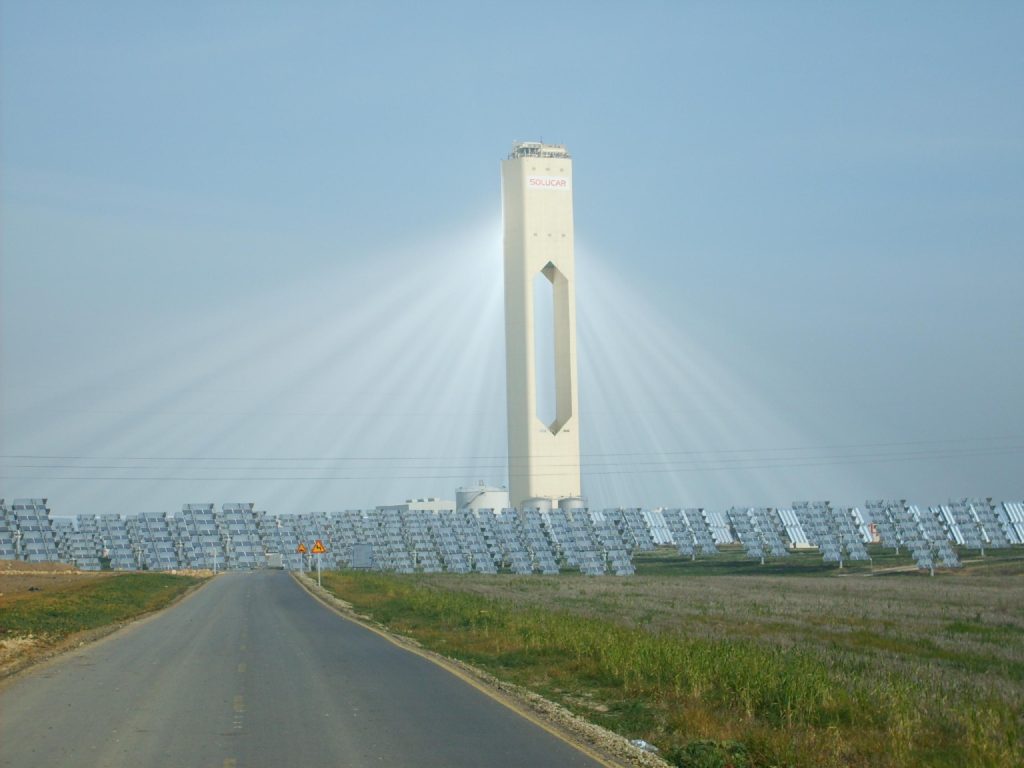Podcast: Play in new window | Download
Subscribe: RSS

Concentrated solar power — in which sunlight is focused to boil water, for example, which then is used to generate power — is the highest industrial form of renewable energy. And is turning out to be a very big mistake.
When a practice arises that is detrimental to the profits of industry — you know, any practice that helps to heal the planet and its human occupiers — industry has a long-practiced, graduated response. First it ignores, then it attacks, and if all else fails it co-opts, and having co-opted, advertises heavily.
Organic farming, for example, was first ignored as a fad, then derided as “no way to feed the world,” then co-opted. Now every other box and package in any supermarket, including cow milk and chicken parts, bears the label “organic.” And by this stage, you know it’s a lie. When asked if he would seek federal certification as an organic grower (federal certification follows industrialization, as the flies the garbage) Joel Salatin famously replied that he would never lower his standards that much.
Another example: Do you remember what happened to the first mass produced electric car, General Motors’s EV1, when the idea was first recognized by industry back in the 1990s? Yeah, me neither, and I drove one. Continue reading






 Experienced con artists — the people who write clickbait ads, manage political campaigns and shake down old people for what’s left of their life’s savings — will tell you that people who get conned, want to be conned. Many, many people go through their lives straining to hear the magic words; “You deserve to be rich,” or “Someone has to win the lottery, why not you?” or “cure cancer with one simple trick.” And when they hear those words, they experience the irrational exuberance of long-denied, at-last-confirmed faith, and are likely to do anything they are asked to do by those who have fulfilled the prophecy.
Experienced con artists — the people who write clickbait ads, manage political campaigns and shake down old people for what’s left of their life’s savings — will tell you that people who get conned, want to be conned. Many, many people go through their lives straining to hear the magic words; “You deserve to be rich,” or “Someone has to win the lottery, why not you?” or “cure cancer with one simple trick.” And when they hear those words, they experience the irrational exuberance of long-denied, at-last-confirmed faith, and are likely to do anything they are asked to do by those who have fulfilled the prophecy. 
